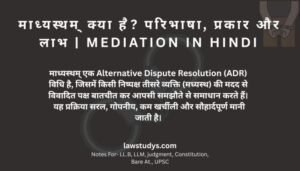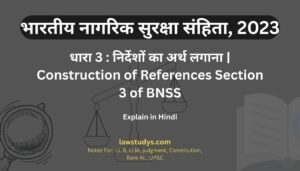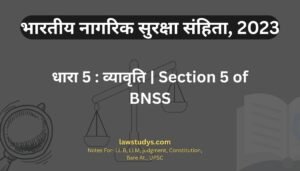Today we are going to talk about Social Action Litigation, from the beginning there has been a traditional state of justice here.
According to this, only any aggrieved or aggrieved party could approach the court. No one else could go to court on his behalf.
If a person was unable to go to the court due to poverty or any other reason, then he was deprived of justice. Then even if a person had a common interest in a case, the same person had to go to the court. No other person could knock on the court on his behalf.
In this way, despite being innocent, being unable to go to the court due to poverty or any other reason, social workers, organizations etc. started demanding justice in the Supreme Court on their behalf.
What is the Schools of Criminology And how many Types are there? – Criminology
Introduction : Social Action Litigation
Social Action Litigation in Public Interest Litigation (PIL) is the latest concept of this century which has played an important role in taking many problems of the society to the court.
In this, social and public problems are resolved through public interest litigation. In order to deal with such a situation, initiative was taken by the social workers and conscious persons and social organizations to take such matters in which there is a wide public interest to the court and there was success in this, this was called social action Litigation.
Due to which, in matters of general interest, any person, association or organization started presenting prayer letters in the court through Public Interest Litigation (PIL). But for this it is necessary that such matters should be related to public interest at large.
In other words, it can be said that matters of social importance can be presented in the court through Public Interest Litigation (PIL).
Essential conditions of Social Action Litigation (SAL)
(1) he is in good faith,
(2) be connected with larger public interest,
(3) social interest is involved in it,
(4) it is not aimed at earning private profit,
(5) He should not be politically motivated.





